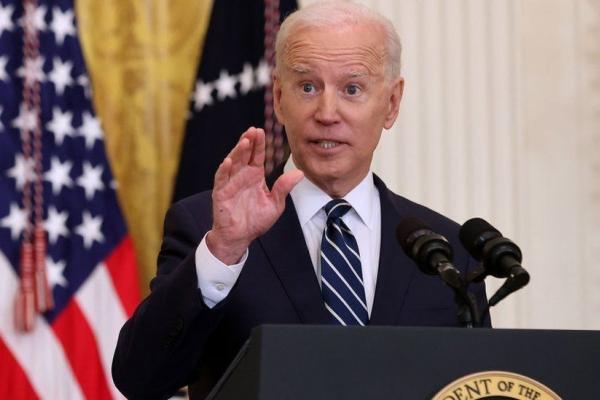It’s no secret that incoming US President Joe Biden needs funding for his highly ambitious campaign package. The cost of his infrastructure plan alone is estimated at around $2.3 trillion, but this is positively dwarfed by the projected $18 trillion needed over the next three decades for the Democrats’ Green New Deal. Even for the world’s biggest economy, that’s some serious cash, and it has to come from somewhere. Biden wasn’t done any favours by his predecessor either.
In 2017, Trump cut the corporate tax rate from 35% to 21%, thus significantly reducing the natural source of income for such projects. Faced with little other choice, the new president tried to drum up support for a tax increase just halfway back to where it was before Trump came to power. The internal resistance from both sides of the aisle in the House of Representatives was fierce, and it had looked as though Biden would be forced to put his plans on hold. But after some serious compromise, it now appears that the bill has not only risen from the dead but is even gaining global traction.
G20 to the rescue
The plan’s far-reaching and ambitious nature had originally given ammunition to its domestic detractors. But that’s all over now that the finance ministers of numerous G20 nations have spoken out in support of the proposal. One notable supporter is German Finance Minister Olaf Scholz, who had this to say: “I’m in high spirits that with this corporate taxation initiative, we’ll manage to put an end to the worldwide race to the bottom in taxation”. Meanwhile, Mr Scholz’s French counterpart, Bruno Le Maire, welcomed the fact that a “global agreement on international taxation is now within reach,” adding, “We must seize this historic opportunity”. This comes after the UK and France, frustrated by the lack of progress in negotiations, famously launched unilateral digital services taxes pending a worldwide consensus.
You can’t please everyone
Naturally, not every major economy is thrilled about establishing a global minimum tax rate for corporations. Ireland is one such example. As the country’s finance minister, Paschal Donohoe, put it: “The focus on a global minimum tax rate is a prospect that I do have reservations about… on what would be the impact of that on the competitiveness for smaller- and medium-sized economies that do have lower rates of corporate taxation and use that as part of their overall competitive model”. However, the necessity of global support for the new programme is obvious. If tax havens are allowed to continue to operate, businesses will simply relocate to these jurisdictions to avoid the programme’s impact. This is also why Biden is looking to close loopholes that see company bookkeepers generate complex ledgers of leases, loans and sales contracts to avoid US taxes. Removing the incentive to do so by standardising corporate taxes worldwide could just be a long-term solution that works.
Compromise and conquer
As we’ve already mentioned, Biden’s plans were initially met with serious opposition — not only from Republican senators and congresspeople but from within his own party, too. However, far from giving up on the project, the wily president has instead been on the offensive in an effort to win lawmakers over to his cause. The biggest battleground here is undoubtedly moderate-to-conservative Democrats, many of whom were truly conflicted by the proposed legislation. One prominent example would be Senator Joe Manchin, who has repeatedly expressed concerns over the need to remain competitive, most recently warning against “throw[ing] caution to the wind”. Mr Manchin has, however, stated that he would be willing to support a hike as high as 25%, a figure that seems much more psychologically acceptable for many previously still on the fence. Biden has listened to what his colleagues are saying and has since revised his target in line with this 25% figure, which might just be enough to get it through Congress.
Final thoughts
Whatever happens, it’s clear that things need to change when it comes to corporate taxation. Companies are making billions in profits and growing every year, yet they are now paying less tax proportionally than they were in the 1970s. Nobody can deny that this is an issue that simply must be tackled in a coordinated, supra-national fashion in today’s increasingly globalised world. Until there is a firm commitment to fair levels of corporation tax across the entire world, the ‘race to the bottom’, as it’s been termed, can never truly end. But, as the US Chamber of Commerce’s continued opposition to the proposals would suggest, the fallout for business is likely to be pretty significant. Many believe that it could even provoke some serious downward movements on the equities markets as the sobering reality of what this means for corporate earnings sinks in for investors.
How to play it
The good news for Libertex clients is this could spell a special opportunity to short the big three US indices (S&P 500, Dow Jones and Nasdaq) or even specific companies, with tech giants tipped to be hit particularly hard. Luckily, Libertex offers both long and short trading in a range of CFDs, spanning ETFs, indices and individual stocks.


